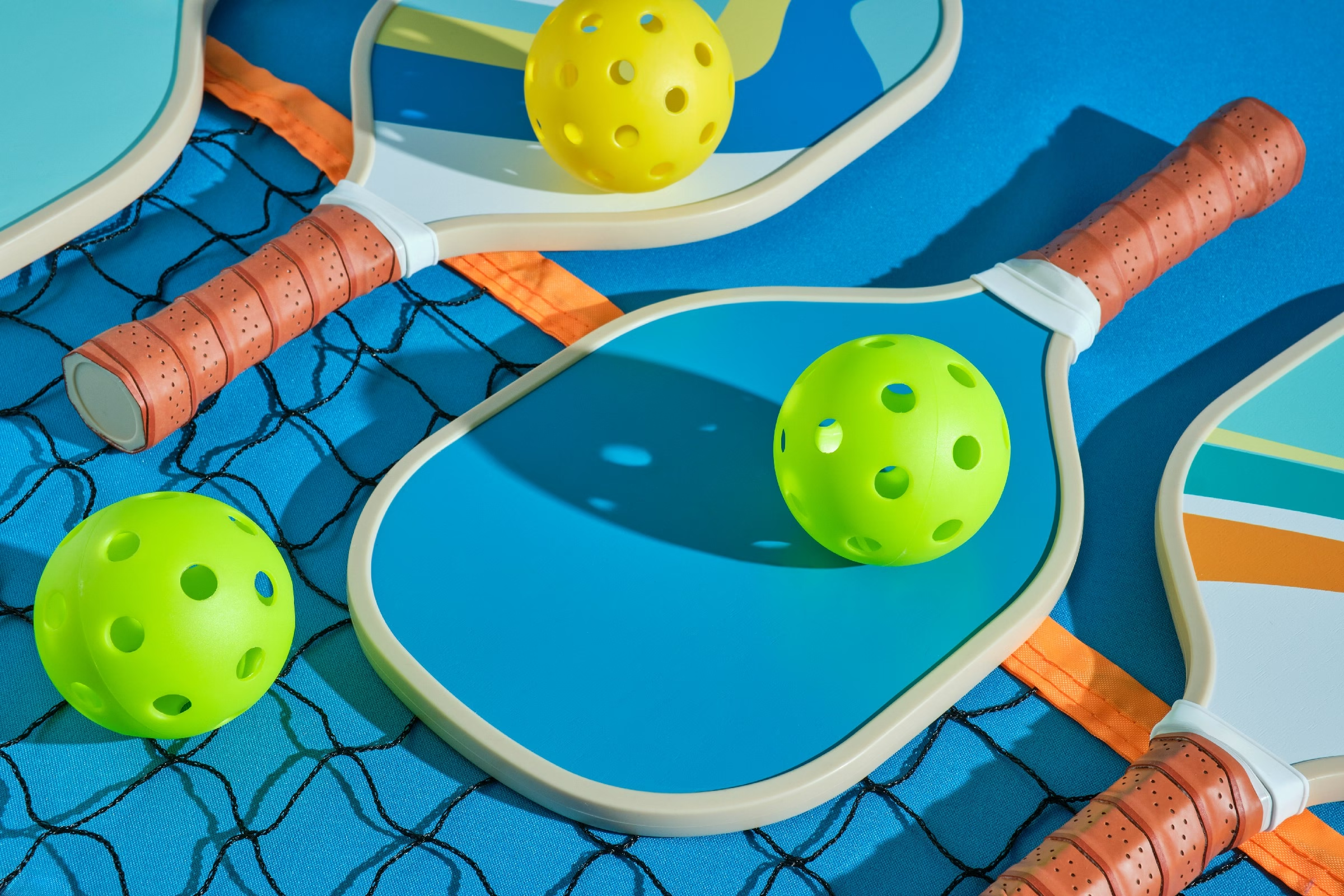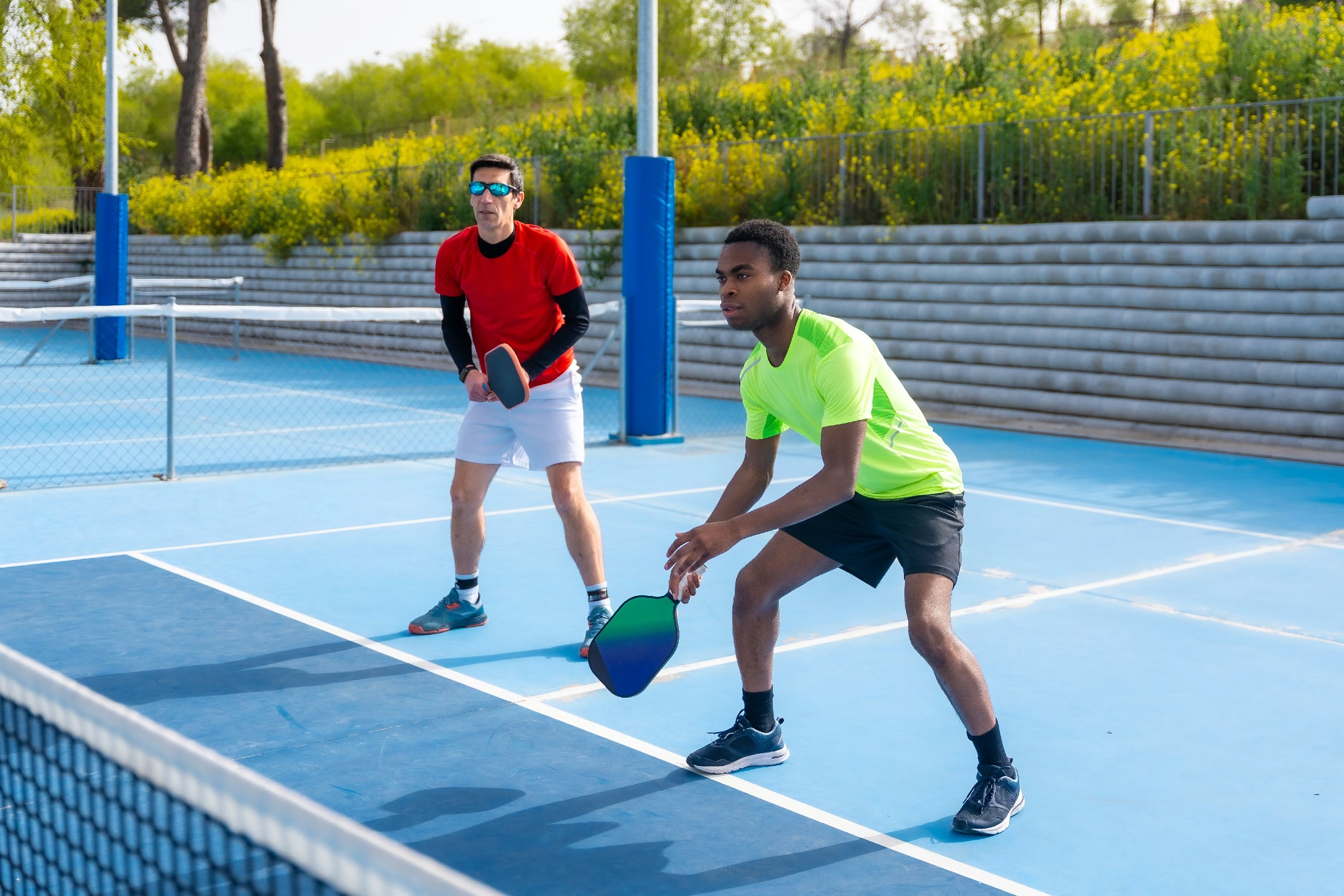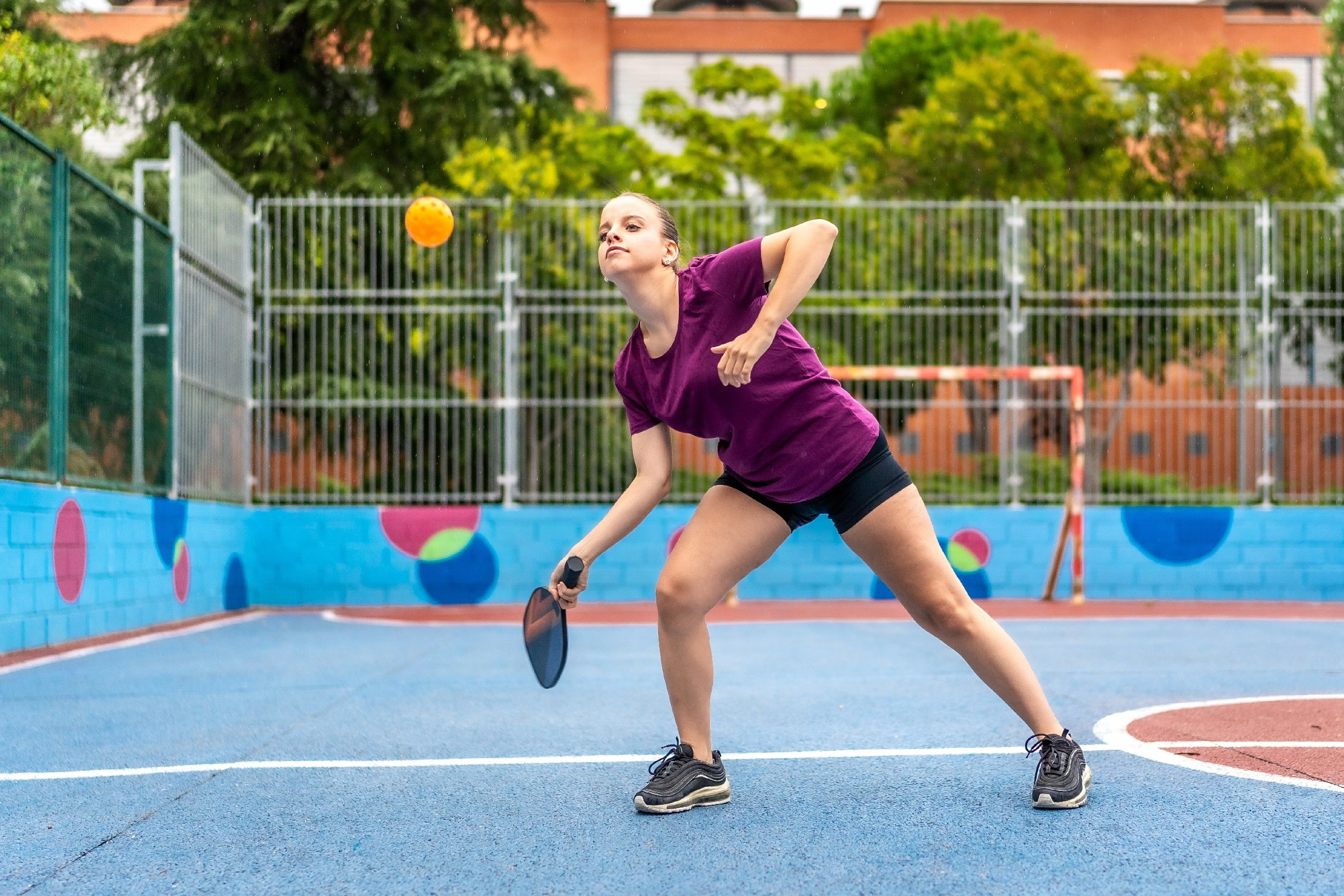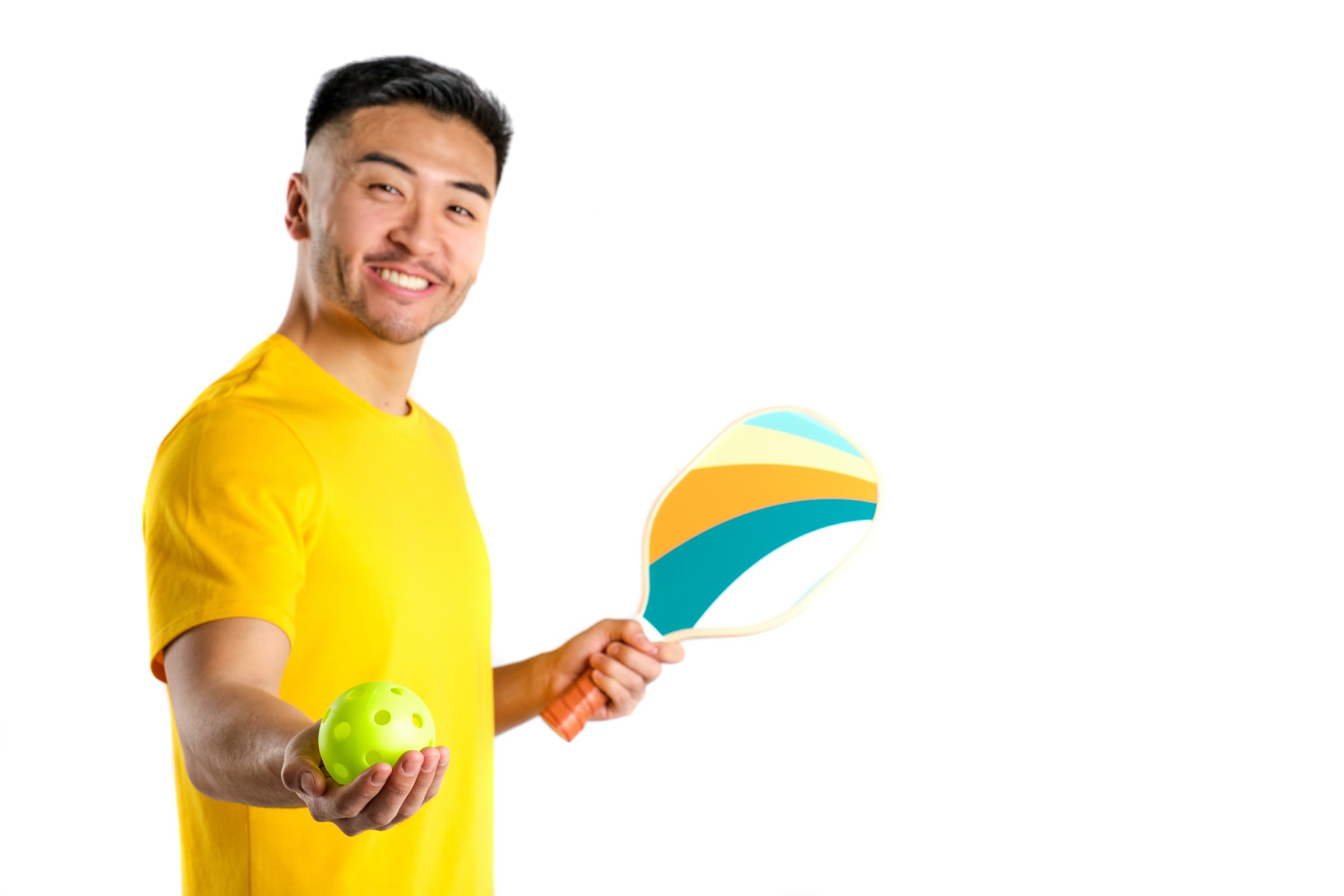Blog
what is the best pickleball paddle for beginners

Title: Navigating the Court: The Best Pickleball Paddle for Beginners
Pickleball, a dynamic racquet sport that combines elements from tennis, badminton, and table tennis, has rapidly gained popularity among players of all ages. As new enthusiasts step onto the court, one crucial question often arises: “What is the best pickleball paddle for beginners?” Selecting the right paddle can substantially influence your learning curve and enjoyment of the game. With numerous options available, from lightweight versions to those engineered for power and control, choosing the ideal paddle can feel overwhelming. This article delves into the essential features to consider, reviews some of the top paddles on the market, and ultimately aims to empower newcomers with the knowlege they need to make an informed choice. Whether you’re gearing up for your first match or simply exploring the vibrant world of pickleball, let’s unravel the paddle puzzle together!
Table of Contents
- Understanding the Fundamentals of Pickleball Paddles
- key Features to Look for in a Beginner’s Paddle
- Material Matters: Wood vs. Composite Options
- Weight and Grip Size: Finding Your Perfect Match
- top Beginner Paddle Recommendations for Every Budget
- Tips for Choosing and Maintaining Your Paddle for Longevity
- Q&A
- to sum up
Understanding the Fundamentals of Pickleball Paddles
Choosing the right paddle is crucial for beginners looking to excel in pickleball. The weight of the paddle significantly affects playability and control. Lighter paddles, ranging from 6 to 8 ounces, enable quicker swings and better maneuverability, which is essential for newcomers. Conversely, heavier paddles provide more power but can be more challenging to handle. Beginners should aim for a paddle that balances weight and control, typically falling in the middle of this range.
the material of the paddle also plays a significant role in performance. Most paddles are made from either wood, composite, or polymer.Wooden paddles are frequently enough the most affordable option and are highly durable, making them suitable for casual play. Composite and polymer paddles, while more expensive, offer better ball control and enhanced power due to their advanced technology. When selecting a paddle, it’s beneficial for beginners to consider how often they’ll play and what style suits their game.
Additionally, the grip size cannot be overlooked. A comfortable grip allows for better control and reduces the risk of injuries. Grip sizes range from extra small to extra large, catering to various hand sizes. Beginners should test different grips, as the right fit enhances comfort during play. Consider trying paddles with a variety of grip sizes before making a decision. Finding the perfect combination of weight, material, and grip can significantly elevate the overall pickleball experience.
Key Features to Look for in a Beginner’s Paddle
When selecting a paddle as a beginner,it’s essential to consider factors that enhance your gameplay and make your learning curve smoother. One of the primary aspects is weight. Lighter paddles,typically weighing between 7 to 8 ounces,allow for better maneuverability and quicker reactions,helping you develop your skills without straining your arm. Moreover, it’s advisable to opt for a paddle with a medium grip size, which can ensure a comfortable hold during play and help you maintain control over your shots.
Another critical feature to look for is the surface material of the paddle. Most beginner paddles are made from either polymer or composite materials. Polypropylene paddles provide excellent control and a softer touch, making them perfect for those just starting. In contrast, composite paddles frequently enough offer better power and durability. Assessing the core thickness can also impact your playing experience; a thicker core generally provides more pop,while a thinner core allows for better touch,perfect for developing finesse in your game.
the design and style of the paddle may also play a role in your choice. Aesthetic appeal can motivate you, but ensure to consider the edge guard as well, as this feature adds durability by protecting the paddle against accidental impacts. Warranty and brand reputation should not be overlooked either; reputable brands often provide quality assurance that can be vital for a beginner investing in their first paddle. Here’s a simple table to summarize the key features to consider:
| Feature | Importance | Recommendation |
|---|---|---|
| Weight | My ability to maneuver | 7-8 oz for better control |
| Grip Size | comfort and control | Medium for beginners |
| Surface Material | Impact on touch and power | Choose between polymer and composite |
| Edge Guard | Protection against damage | Necessary for durability |
| Warranty | Quality assurance | Look for trusted brands |
Material Matters: Wood vs. Composite Options
When selecting a pickleball paddle, one of the most critical decisions revolves around the material used in its construction. Generally,the two primary options are wood and composite materials,each offering unique characteristics that cater to different styles of play. Wood paddles, typically heavier and more straightforward in design, are excellent for beginners looking for durability and a budget-kind option. They can withstand significant wear and tear, making them a practical choice for those just starting their journey in pickleball.
On the other hand, composite paddles present an advanced playing experience thanks to their innovative construction. Made from a blend of materials, these paddles are often lighter, providing enhanced maneuverability and control.Many players appreciate the power and precision that composite paddles offer since they can improve shot placement and spin. The investment in a composite paddle may pay off for beginners as they advance in skill level, allowing them to grow without the need for frequent equipment upgrades.
| Material | Pros | Cons |
|---|---|---|
| Wood |
|
|
| Composite |
|
|
Ultimately, the choice between wood and composite materials boils down to individual needs and playing style. Beginners may initially gravitate towards wood paddles for their affordability and durability, but as skills progress, exploring composite options may bring significant benefits. Understanding the essential differences will help beginners choose a paddle that not only suits their current skills but also supports their growth in this exciting sport.
Weight and Grip Size: Finding Your Perfect Match
Choosing the right weight for your pickleball paddle is crucial, especially for beginners who are still developing their skills and finding their rhythm on the court. Paddles typically weigh between 6 to 14 ounces and understanding the impact of weight can greatly enhance your playing experience. Lighter paddles allow for quicker reaction times and are easier to maneuver, making them a great choice for players new to the game. Conversely,heavier paddles provide more power and stability upon impact but may require a bit more strength and control.Here’s how to find the right balance:
- Lightweight Paddles: Ideal for swift maneuverability and control.
- Midweight Paddles: Offer a good mix of power and control.
- Heavy Paddles: Best for power hitters looking to drive the ball more forcefully.
Grip size plays another significant role in the comfort and effectiveness of your strokes. A proper grip size not only enhances control over your paddle but also reduces the risk of injuries such as tennis elbow. Generally, grip sizes range from 4 inches to 4 ¾ inches in circumference. To determine your ideal grip size,measure the distance from the tip of your ring finger to the second line on your palm. Here’s a simple guide to help you identify your grip size:
| Grip Size | Ideal Hand Size |
|---|---|
| Small (4”) | Women’s hand size or smaller |
| Medium (4 ¼”) | Most women and some men |
| Large (4 ½”) | Most men |
| X-Large (4 ¾”) | Extra-large hands |
it’s essential to experiment with different weights and grip sizes to find what feels natural and comfortable for you. Spend time holding various paddles and practicing your swings to determine what best enhances your control and power. Remember that what works for one player may not work for another; your personal comfort and playing style are paramount. Once you’ve found your perfect match, you’ll be ready to hit the court with confidence!
Top Beginner Paddle Recommendations for Every Budget
Choosing the right pickleball paddle as a beginner can influence not only your comfort on the court but also your overall enjoyment of the game. For those on a tight budget, the Onix Z5 Graphite Paddle is a standout option. Priced around $50, it offers a balanced blend of power and control, making it perfect for players just starting out. The lightweight design helps beginners maneuver easily while developing their skills,plus its durable build ensures it will last through countless matches.
For those willing to invest a little more, the Selkirk Amped S2 Paddle comes highly recommended. With a price tag in the range of $130, it features a large sweet spot and a comfortable handle that reduce vibration, providing a more enjoyable play experience. The paddle’s polymer core offers remarkable pop, which can definitely help beginners generate speed without sacrificing control. Its versatility makes it suitable for a variety of playing styles, adapting as your skills progress.
If you’re looking for a premium paddle, the Paddletek Tempest Wave Pro is an excellent choice priced at approximately $150. This paddle incorporates advanced technology for top-level performance, boasting a wide face for maximum ball control. The lightweight construction enhances speed and agility, essential for beginners who want to improve rapidly. Here’s a quick comparison of these paddles to help you decide:
| Paddle Model | Price | Key Feature | Ideal For |
|---|---|---|---|
| Onix Z5 Graphite | $50 | lightweight & durable | Budget-conscious beginners |
| Selkirk Amped S2 | $130 | Large sweet spot | Versatile play style |
| Paddletek Tempest Wave Pro | $150 | Advanced technology | Serious beginners & advancing players |
Tips for Choosing and Maintaining Your Paddle for Longevity
Choosing the right paddle can significantly enhance your pickleball experience, especially for beginners. When selecting a paddle, consider the following key aspects that cater to your playing style and comfort:
- Weight: Paddles typically range from light (6-7 ounces) to heavy (8-10 ounces). Lighter paddles offer better maneuverability, making them ideal for quick reactions, while heavier paddles provide more power.
- Material: Paddle materials greatly influence performance. Common options include composite, wood, and polymer cores. Composite paddles are popular for their balance between power and control.
- Grip Size: Proper grip size ensures comfort during play. To measure, hold the paddle and ensure you can fit your index finger between your fingers and palm when gripping.
Maintenance of your paddle is just as crucial as choosing the right one. Here are some practices that can help prolong the life and performance of your paddle:
- Cleaning: Regularly wipe your paddle with a damp cloth to remove dirt and debris. Avoid soaking it or using harsh chemicals that coudl damage the surface.
- Storage: Store your paddle in a protective cover when not in use. Keep it away from extreme temperatures and direct sunlight to prevent warping or damage.
- Check for Damage: Frequently inspect your paddle for signs of wear or cracks, especially after intense play. Address any issues promptly to maintain optimal performance.
By carefully selecting and maintaining your paddle, you ensure a more enjoyable and consistent gameplay experience. Here’s a quick reference table summarizing essential paddle characteristics:
| Characteristic | Description |
|---|---|
| Weight | Light (6-7 oz) for maneuverability; Heavy (8-10 oz) for power. |
| Material | Composite for balance; Wood for budget-friendly option. |
| Grip Size | Ensure proper fit for comfort and control. |
Q&A
Q&A: The Best Pickleball Paddle for Beginners
Q1: What factors should beginners consider when choosing a pickleball paddle?
A1: when selecting a pickleball paddle, beginners should consider factors such as weight, grip size, paddle material, and price. A lighter paddle (7-8 ounces) is frequently enough recommended for newcomers, as it allows for better maneuverability. Moreover, ensuring the right grip size (usually between 4” and 4 ¾”) helps prevent hand fatigue during play. Materials vary from wood to composite and graphite, with wood being the most affordable yet less popular among more serious players. Setting a budget is also essential, as there are excellent paddles available across various price ranges.
Q2: Is there a specific paddle that is highly recommended for first-time players?
A2: Many experts recommend the ONIX Z5 Graphite paddle for beginners. It strikes the perfect balance between control and power, making it easier for new players to develop their skills. The larger sweet spot aids in hitting the ball consistently,and its lightweight design provides excellent handling. Another great option is the Selkirk Neo Paddle, known for its affordability and versatility, making it an ideal pick for novices who are still figuring out their preferred style of play.
Q3: Should I prioritize price or quality when selecting my first paddle?
A3: For beginners, it’s important to find a balance between price and quality. While it might be tempting to go for the cheaper options, investing in a reliable paddle, even at a slightly higher price, can significantly enhance your playing experience. A good-quality paddle will likely offer better durability, performance, and comfort, ultimately fostering faster improvement. Consider paddles that fall within the mid-range price point for the best value.
Q4: Can I choose a wooden paddle as a beginner?
A4: Absolutely! Wooden paddles are a great choice for beginners,especially if you’re just starting out and looking to keep costs low. They are generally more durable and can withstand a lot of wear and tear. Though, it’s critically important to note that wooden paddles are usually heavier and may lack the power and finesse of composite or graphite paddles. If you feel as though you’re committed to the sport, consider transitioning to a lighter paddle as you gain experience.
Q5: How does grip size affect my performance?
A5: Grip size plays a crucial role in your control and comfort while playing. If the grip is too small, your hand may slip, causing you to lose precision in your shots. Conversely, a grip that is too large can limit your wrist movement, making it difficult to generate spin or control. as a beginners’ rule of thumb, you should be able to hold your paddle comfortably, with your fingers just barely touching your palm. If you’re unsure, it’s wise to visit a local sporting goods store and test several sizes.
Q6: How critically important are paddle reviews and ratings when making a decision?
A6: paddle reviews and ratings can be incredibly helpful when making your decision. they provide insights from other players’ experiences, revealing aspects that may not be promptly apparent through product descriptions. Though, reviews should be considered just one component of your research. Personal comfort and play style are equally important; what works for one player may not necessarily be the best choice for another.
Q7: Is it necessary to try out different paddles before making a purchase?
A7: If possible, definitely! Trying out different paddles can give you a feel for various weights, grips, and materials, helping you discover what suits you best. Many local pickleball clubs offer demo days or have paddles available for rent. Engaging with other players and getting their advice can also help in the decision-making process. Ultimately, the paddle that feels the best in your hand will likely inspire the most confidence as you begin your pickleball journey.
Whether you’re just taking your first steps onto the court or gearing up to enhance your skills, selecting the right pickleball paddle is an essential part of your journey. With these guidelines, you’re well-equipped to find the paddle that will accompany you on countless games ahead!
In Conclusion
choosing the right pickleball paddle as a beginner sets the foundation for your journey into this exciting sport. With a myriad of options available, it’s essential to consider factors such as weight, material, grip, and your playing style to find the perfect match for your needs. As you step onto the court, remember that the paddle is not just a piece of equipment; it’s an extension of your passion for the game. Take the time to explore, test different paddles, and listen to the advice of experienced players. With the right paddle in hand, you’ll not only elevate your performance but also enhance your enjoyment of pickleball. So gear up, embrace the challenge, and let the fun begin—your pickleball adventure is just a swing away!












